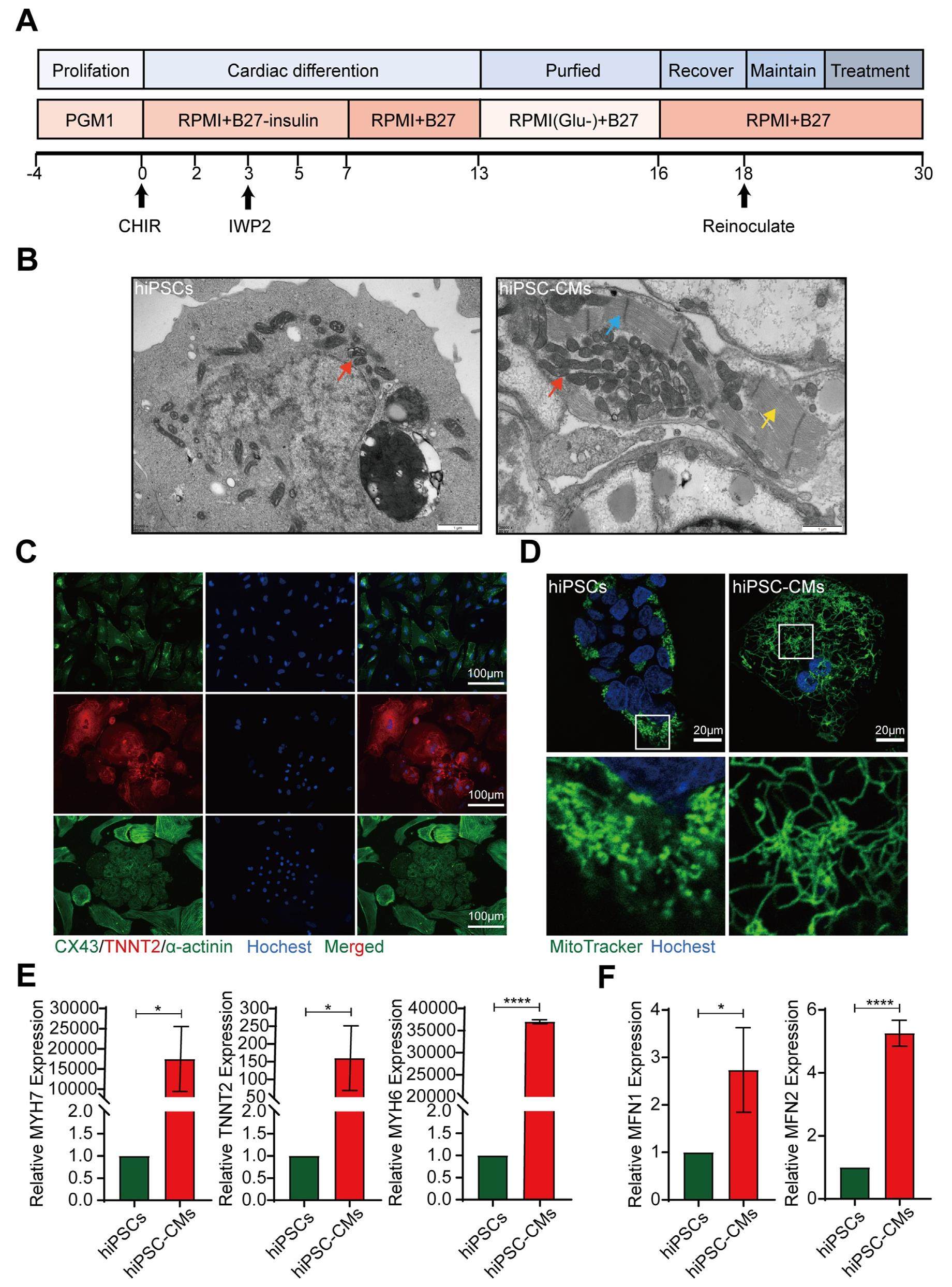
PTEN-induced putative kinase 1 regulates mitochondrial quality control and is essential for the maturation of human induced pluripotent stem cell-derived cardiomyocytes


Human induced pluripotent stem cell-derived cardiomyocytes (hiPSC-CMs) have attracted attention in the field of regenerative medicine due to their potential ability to repair damaged hearts. However, the immature phenotype of these cells limits their clinical application. Cardiomyocyte maturation is accompanied by changes in mitochondrial quality. PTEN-induced putative kinase 1 (PINK1) has been linked to mitochondrial quality control. However, whether the changes in mitochondrial quality in hiPSC-CMs are associated with PINK1, and the impact of PINK1 on hiPSC-CMs development are not clear. In this study, we found that knockdown of PINK1 in hiPSC-CMs resulted in mitochondrial fragmentation and impaired mitochondrial functions such as mitophagy and mitochondrial biogenesis. PINK1 deletion also inhibited the maturation of hiPSC-CMs, reverting them to a naive structural and functional state. We found that restoring the mitochondrial structure did not completely rescue the mitochondrial dysfunction caused by PINK1 deletion, while activation of PINK1 kinase activity using kinetin promoted mitochondrial fusion, increased the mitochondrial membrane potential and ATP production, and maintained the development and maturation of hiPSC-CMs. In conclusion, PINK1 regulates the mitochondrial structure and function of hiPSC-CMs, and is essential for the maturation of hiPSC-CMs.
